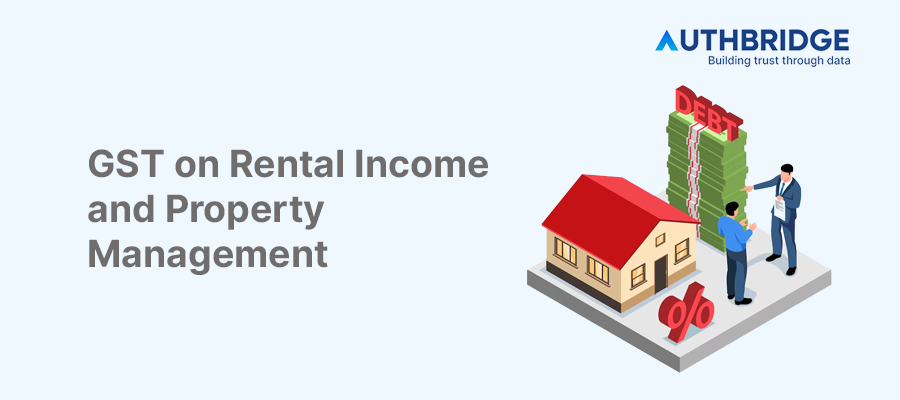GST For Rental Income & Property Management

GST and Its Impact on Property Rental Sector
The Goods and Services Tax (GST) has significantly reformed the taxation landscape in India, including the property rental sector. By streamlining multiple indirect taxes into a single tax system, GST aims to bring clarity and uniformity across various sectors. This section will delve into how GST impacts the property rental market, focusing on both residential and commercial properties.
Overview of GST Applicability on Property Rent
GST applicability on property rent varies based on the type of property (residential or commercial) and the purpose of use. Understanding these nuances is crucial for property owners and tenants to ensure compliance and optimize their tax liabilities. This overview will shed light on the conditions under which GST is levied on property rent.
GST on Residential Property Rent
Exemptions and Conditions
Renting of residential properties for residential use is exempt from GST. However, specific conditions and scenarios might alter this exemption, such as renting residential properties for commercial use. This section will outline the exemptions and the conditions under which they apply.
Impact on Landlords and Tenants
The exemption of GST on residential property rent primarily benefits landlords and tenants by reducing the tax burden. However, understanding the impact of GST on various rental scenarios is essential for making informed decisions. This part will explore how GST affects both parties involved in residential property rentals.
GST on Commercial Property Rent
GST Rates for Commercial Rentals
Commercial property rentals attract GST at a standard rate of 18%. This includes office spaces, shops, and other commercial premises. Detailed information on GST rates and their applicability will be provided to help property owners and businesses understand their tax obligations.
Input Tax Credit (ITC) for Businesses
One of the significant advantages of GST for businesses renting commercial properties is the eligibility to claim Input Tax Credit (ITC). This section will discuss how businesses can claim ITC on GST paid on commercial property rent, reducing their overall tax liability.
Compliance and Filing for Property Rentals under GST
Mandatory GST Registration for Property Owners
Property owners renting out commercial spaces are required to register for GST if their rental income exceeds the specified threshold. This part will detail the registration process, threshold limits, and documentation required for GST registration.
Filing GST Returns: Procedures and Deadlines
Registered property owners must file periodic GST returns, detailing their rental income and tax liabilities. This section will outline the return filing requirements, including the types of returns, filing frequency, and deadlines.
Challenges and Solutions in GST Compliance for Property Rentals
Common Compliance Issues and Their Resolutions
Property owners often face challenges in navigating the GST compliance landscape, from understanding the applicability of GST on different types of rentals to managing ITC claims. This section will address these challenges and offer solutions to help property owners manage GST compliance effectively.
Leveraging Technology for Efficient GST Management
Technology can play a crucial role in simplifying GST compliance for property rentals. This part will explore how property owners can leverage technology, such as GST software and apps, to streamline tax calculations, filing, and record-keeping.
Conclusion
The Role of GST in the Property Rental Market
GST has played a significant role in structuring the tax regime for the property rental market, promoting transparency and uniformity. Reflecting on the impact of GST, this section will discuss how it has facilitated the sector's growth and what property owners can do to ensure compliance and benefit from the GST regime.
Future Outlook for GST Compliance in Property Rentals
As the GST framework continues to evolve, staying informed about regulatory changes and updates is crucial for property owners. The future outlook will focus on potential changes in GST regulations affecting property rentals and the importance of continuous compliance.
Category

Abhinandan Banerjee
(Associate Manager - Marketing)
Abhinandan is a dynamic Product and Content Marketer, boasting over seven years of experience in crafting impactful marketing strategies across diverse environments. Known for his strategic insights, he propels digital growth and boosts brand visibility by transforming complex ideas into compelling content that inspires action.



